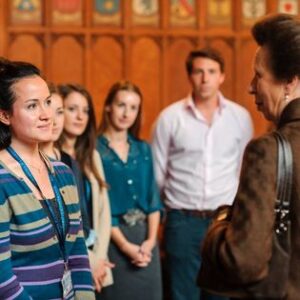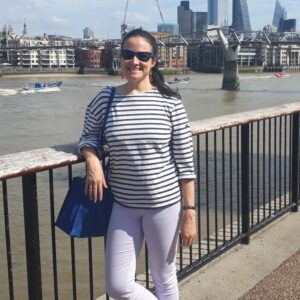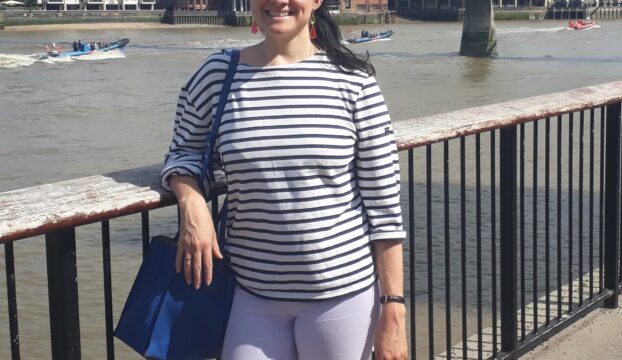Alumna Amy Plender (MA Hons 2015, MTh 2017) is a civil servant who works on the UK Government’s response to the Grenfell Tower fire.
“I chose Edinburgh before I chose a subject. I wanted to be in a big, exciting city that had a life beyond the university. My first plan was to study English Literature. I did a gap year in Haiti after the earthquake in 2010, which made me think about my faith in a new way. I hadn’t done Religious Studies since GCSE, but I applied for theology in Edinburgh and got in. I arrived wondering if I might still transfer into English, but people at New College were so lovely and I loved its sense of community. By the end of first year I saw that everything I loved about English Lit was also there in Divinity: telling stories, exploring nuances of language and understanding, connecting with people through old and modern texts. I took an outside course in Scottish Literature in first year, but from then on, all my courses were in Divinity.


“I stayed on for the MTh because I felt I had more to learn. Religious literacy is important to me—especially in helping people who don’t have a faith understand what it’s like for people who do. My postgraduate research was on suffering, trauma, and lament. After that, I applied for an internship in London with the think tank Theos. It was a communications and research post, so my theological background meant I got opportunities to write on social issues, and to speak on Radio 4’s Sunday programme. That six-month internship then became a job.
“The Grenfell Tower fire had happened while I was a student. Through my background in lament and inter-faith dialogue, I’d been interested in how faith groups had responded, and was asked by Theos to write about it. My religious literacy and trauma-informed background helped me approach those issues.
“I moved on from Theos to work for Eido Research, providing management consultancy for churches and faith groups, but eventually I applied for a civil service position working with Grenfell.
“My background in theology informs my civil service work profoundly. In a typical week I engage with government ministers and bereaved parents. My work always has many facets and means thinking through difficult problems. Theology trains you for that kind of real life complexity. It pushes you towards nuance, humanness and meaning.”



